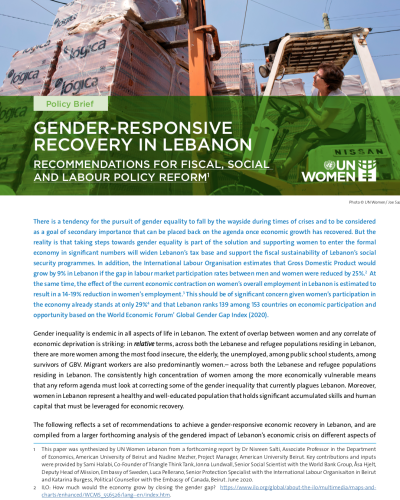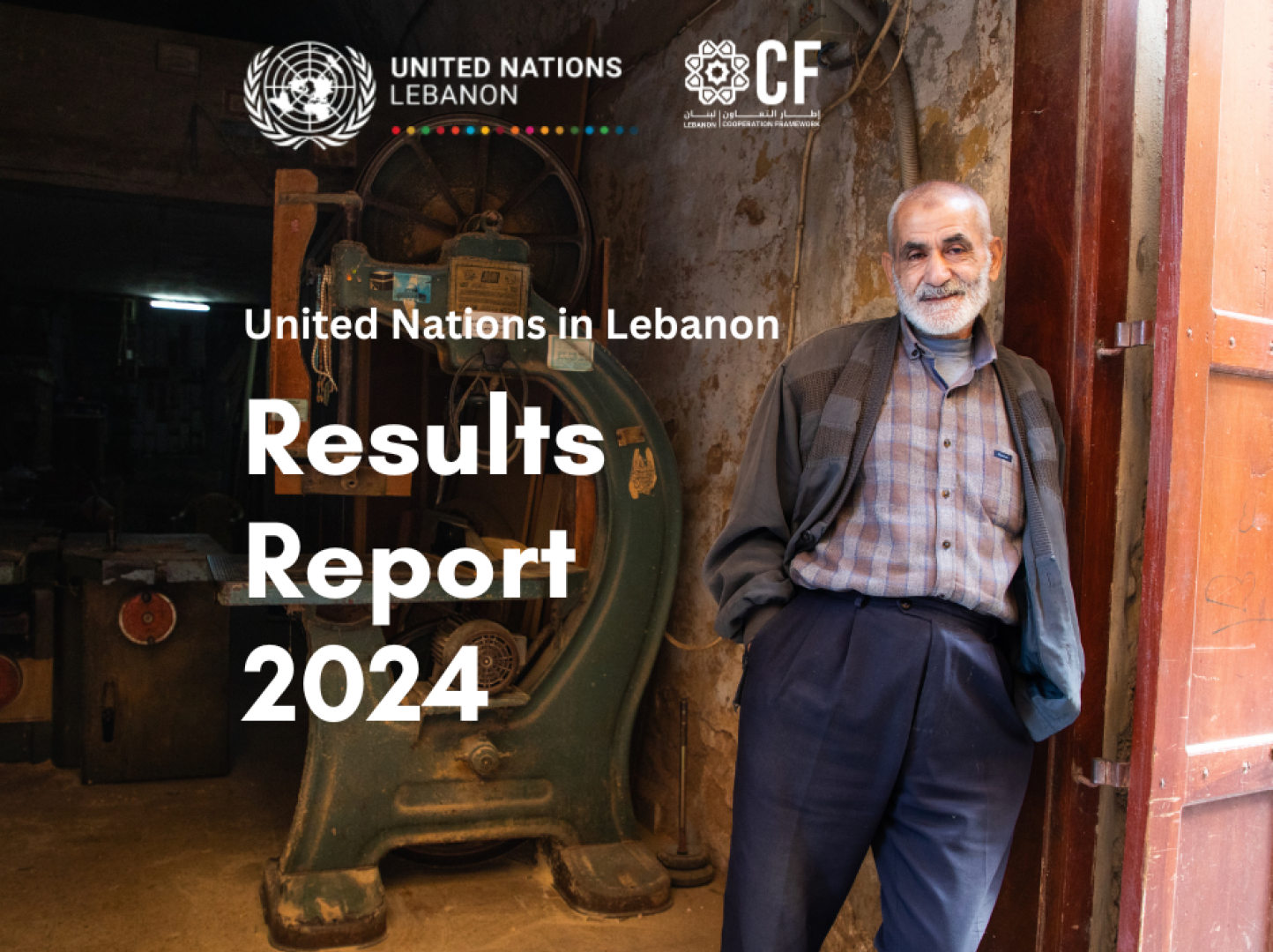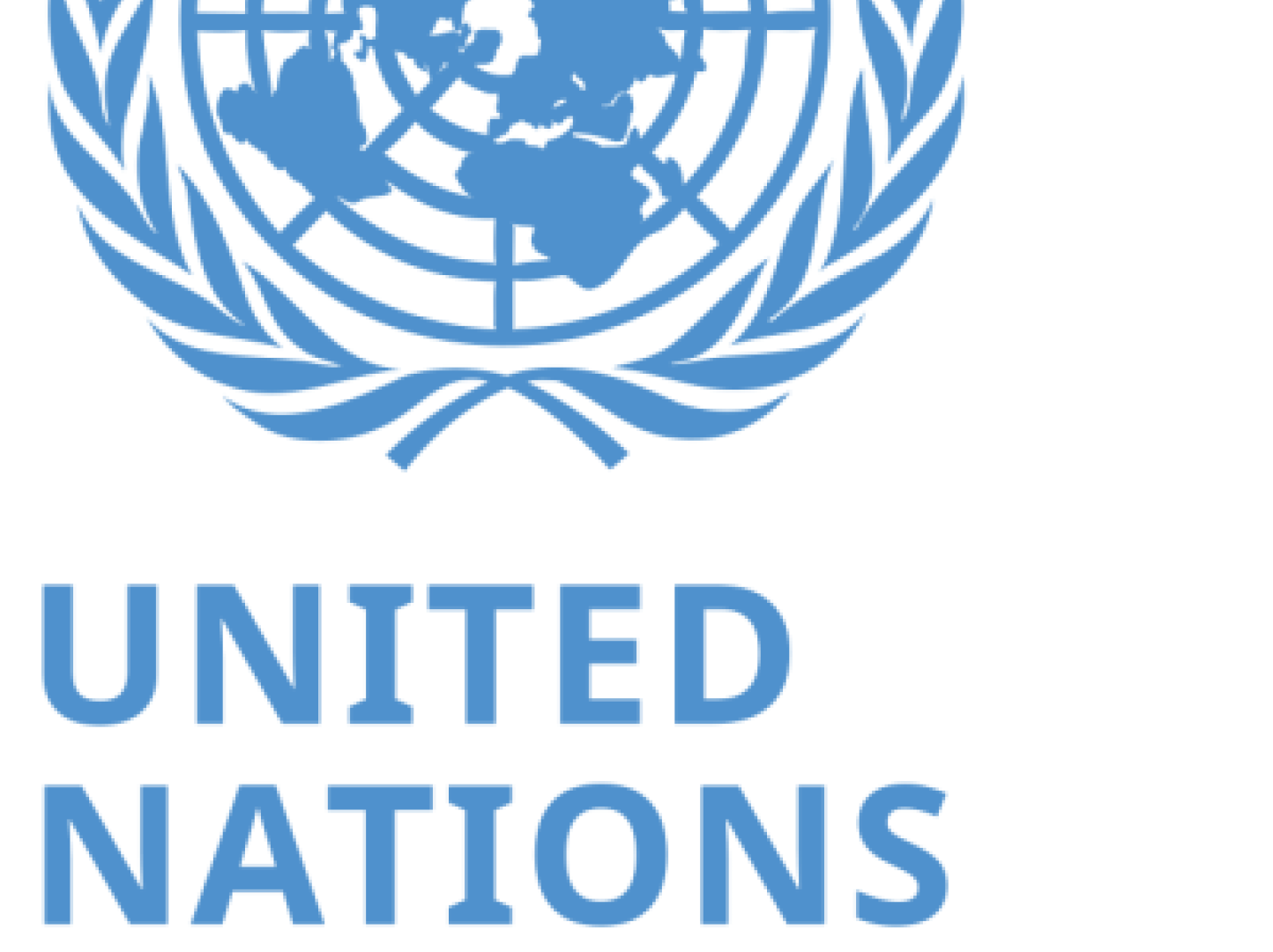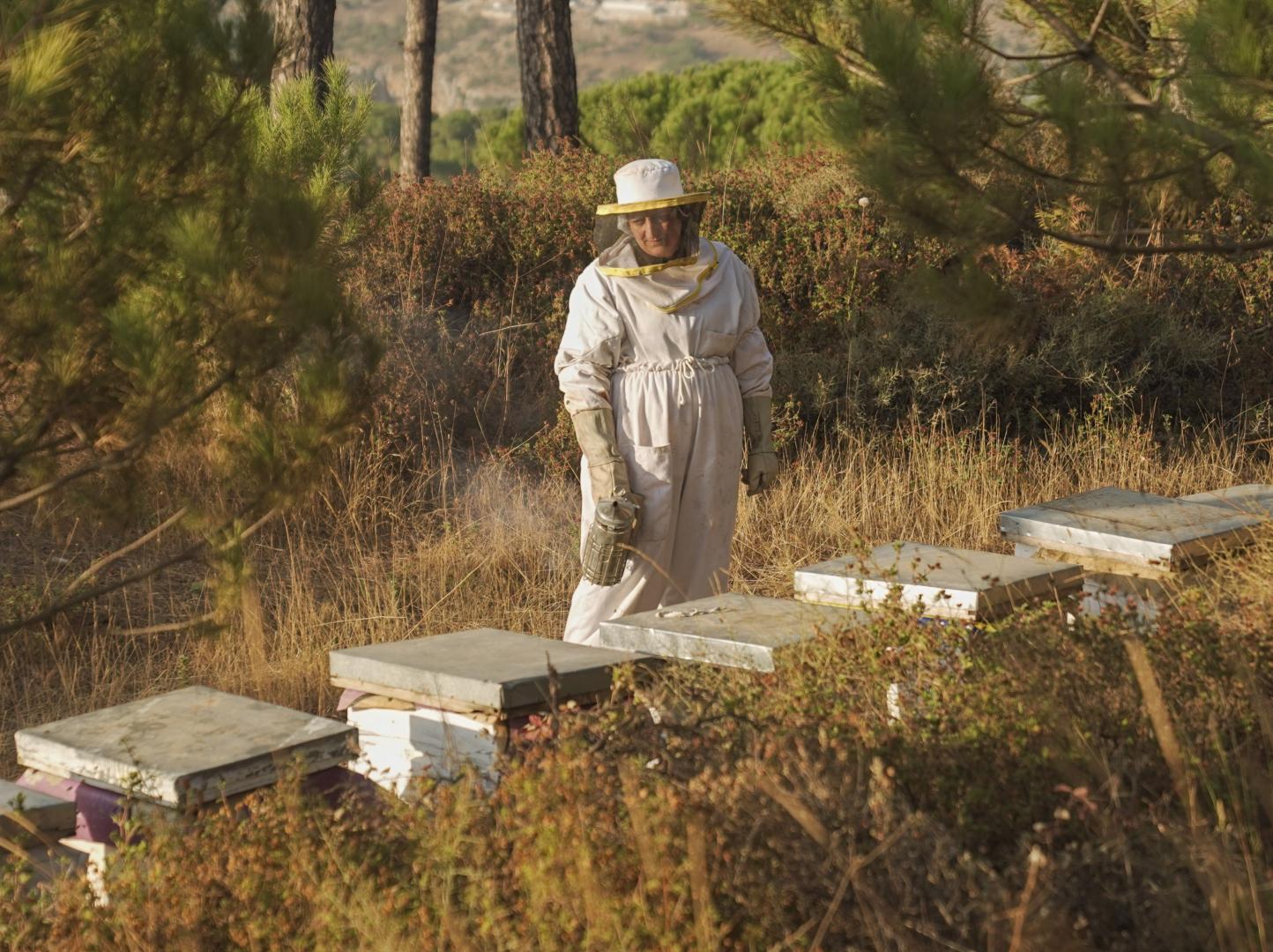Gender-Responsive Recovery in Lebanon: Recommendations for Fiscal, Social and Labour Policy Reform

There is a tendency for the pursuit of gender equality to fall by the wayside during times of crises and to be considered as a goal of secondary importance that can be placed back on the agenda once economic growth has recovered. But the reality is that taking steps towards gender equality is part of the solution and supporting women to enter the formal economy in significant numbers will widen Lebanon’s tax base and support the fiscal sustainability of Lebanon’s social security programmes. In addition, the International Labour Organisation estimates that Gross Domestic Product would grow by 9% in Lebanon if the gap in labour market participation rates between men and women were reduced by 25%.2 At the same time, the effect of the current economic contraction on women’s overall employment in Lebanon is estimated to result in a 14-19% reduction in women’s employment.3 This should be of significant concern given women’s participation in the economy already stands at only 29%4 and that Lebanon ranks 139 among 153 countries on economic participation and opportunity based on the World Economic Forum’ Global Gender Gap Index (2020).








